Notice
Storing food during this tumultuous time is essential. Because COVID-19 Coronavirus is growing at the rate it is, we thought it would be best to publish an article which would help you out with properly storing and making the most out of your food. Remember, it’s vital that you don’t partake in any group activities or visit locations where a mass amount of people are in attendance. Thank you.
We hope you enjoy our article.
_____________________
The better we are at storing food and managing leftovers, the longer it’ll last. Additionally, tons of waste will be reduced. Our grocery shops are so full of delicious items that sometimes we buy more than we need. This leads to a lot of food going uneaten and eventually spoiling.
But it doesn’t have to be that way. With awesome insights from Christina Lui’s book, Sustainable Home, and other sources, this week House.mt is giving you some great tips on how to store food properly and utilize last night’s meal.
Before we get to tips on properly storing your food, here is some information on organic waste and what happens to it after we chuck it in the bin.
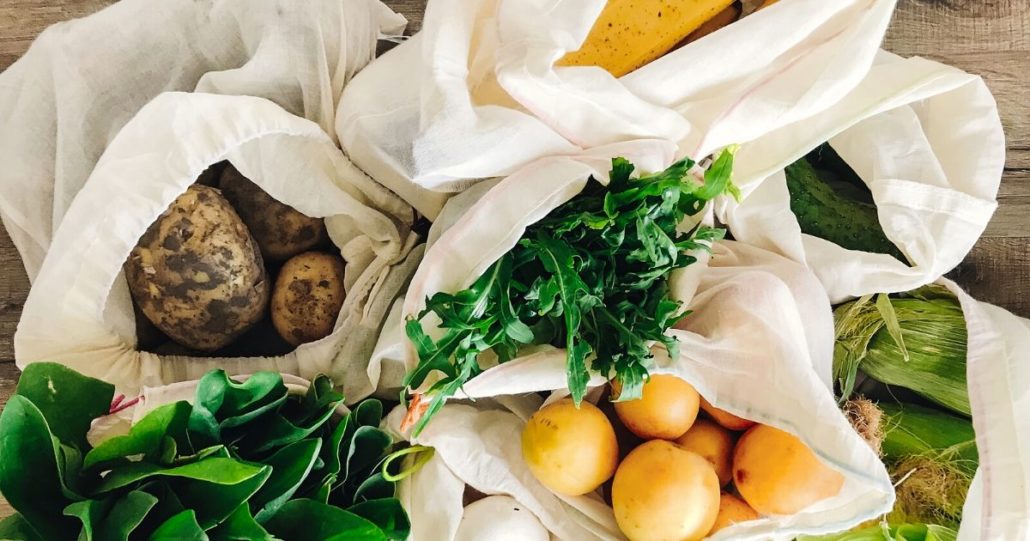
Where is our waste going?
We’re lead to believe that organic waste isn’t wasteful. Contrary to popular belief, food and organic waste are still sent to landfills and have trouble decomposing. But, why?
The large trucks that collect our garbage (organic included) fill landfills with so much trash that it leaves little room for oxygen to interact with its contents. In order for organic matter to decompose, it needs oxygen. If it doesn’t get oxygen, it won’t.
Waste in Malta
Wasteserve have stated that in 2019 alone more than 27,000 tons of organic waste was collected ‘this exceeding by far the projections based on the pilot project’. Sadly, it seems like collecting and sorting organic waste meets a dead end. They explain that the organic waste gathered is turned to a compost-like material. So far, so good. Further on, we discover that this compost-like material ‘is derived from both the black bags and white bags…
Hence there is a level of contamination and this material cannot as yet be used as a soil improver‘.
wasteservmalta.com.mt/organic
So, how can we reduce organic waste?
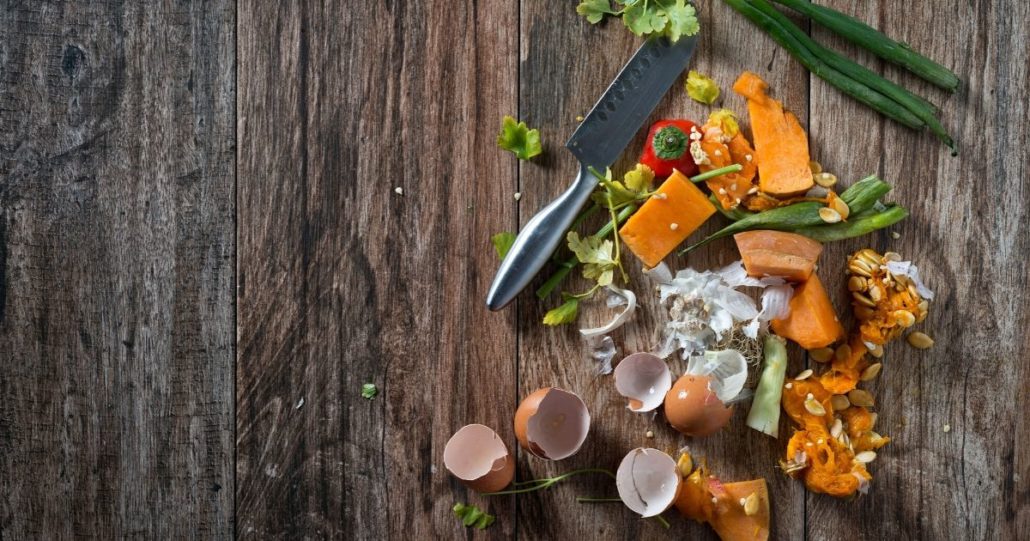
Shop Your Own Fridge
This is pretty self-explanatory but really important! You want to make sure you’re not wasting things you already have. So shop your fridge, go through your cabinets, and make sure you’re using everything up before you buy anything new.
Best-before vs. Use-by
This is another important point because many people take these signs on labels too strictly.
- Use-by: Indicates a safety concern associated with the development of unwanted bacteria. This is commonly found in meat and dairy products.
- Best-before: Implies that the food is still good to eat after the date, but just may not taste as great.
These dates aren’t a hard-and-fast rule when it comes to eating their contents. One tip is to smell the food first and then decide if it’s still smells fresh. But you can still consume a food item up to a few days after their sell-by date.
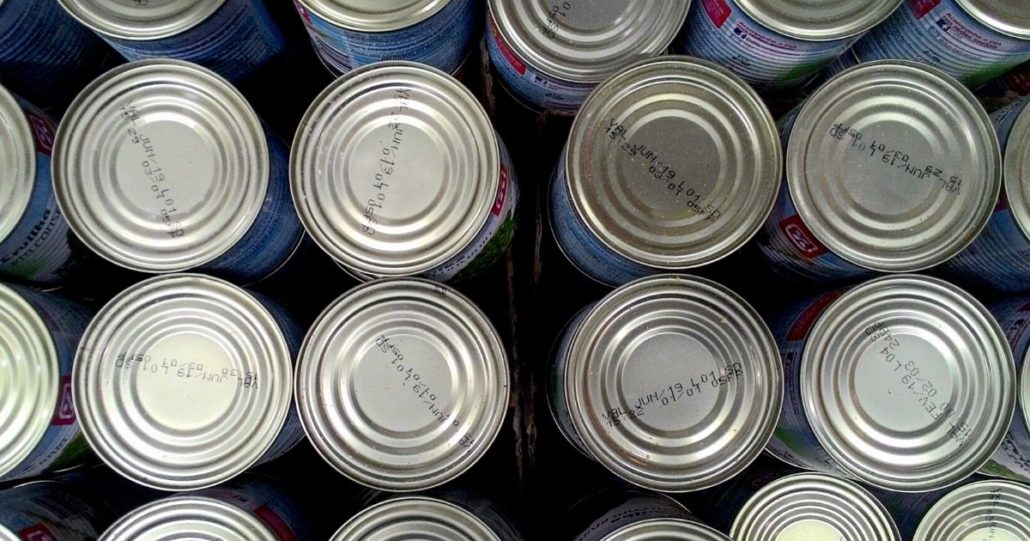
Tips for Storing Food
1 Separate fruits and vegetables
Fruits and vegetables are some perishable food groups that sometimes ripen faster when placed in the same space. Fruits emit ethylene gas: this is a ripening agent which causes other produce to spoil more quickly.
If you don’t have the space to separate, invest in these ethylene gas absorbers. These are really simple to use, and they don’t take up a lot of space. Just pop them in your fridge drawer, and they’ll absorb extra ethylene gas!
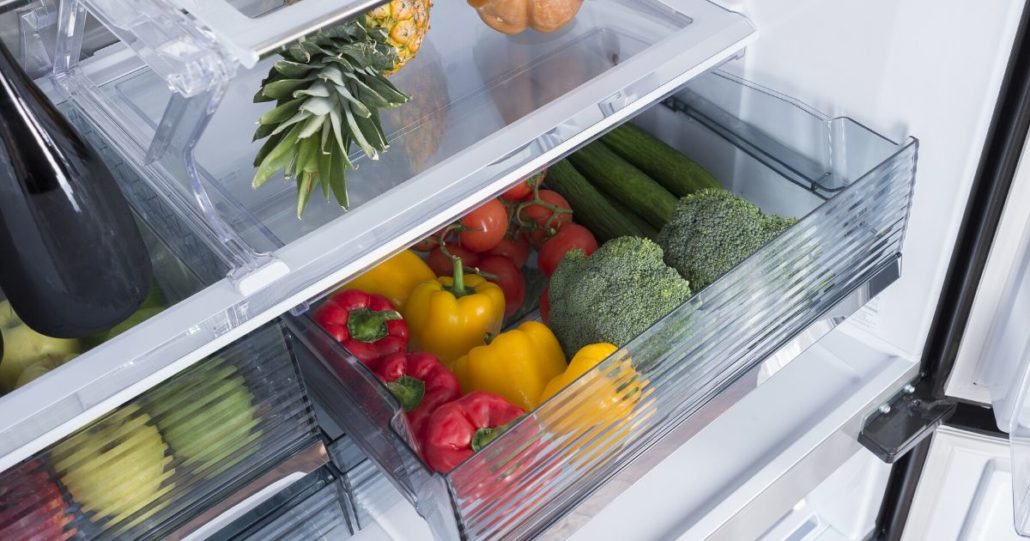
2. Know what foods to eat first
According to Christine Liu, produce that contain the most water in them spoil the quickest. These tend to be most fruits and vegetables like romaine lettuce, and spinach. She recommends you eat or cook and store these as quickly as possible.
3. Remove moisture from certain produce
Some produce don’t fare well when they’re in a moist environment. Think of lettuce or other leafy greens that go bad after a few days in the fridge.
According to Christine Liu, you can use reusable cotton mesh bags – which go for $17 on Amazon. But kitchen paper towels work just as well. Both are wonderful to help wick away moisture and keep produce dry.
Try and keep leafy greens away from foods that produce ethylene gas: so, apples, grapes, avocados to name a few.
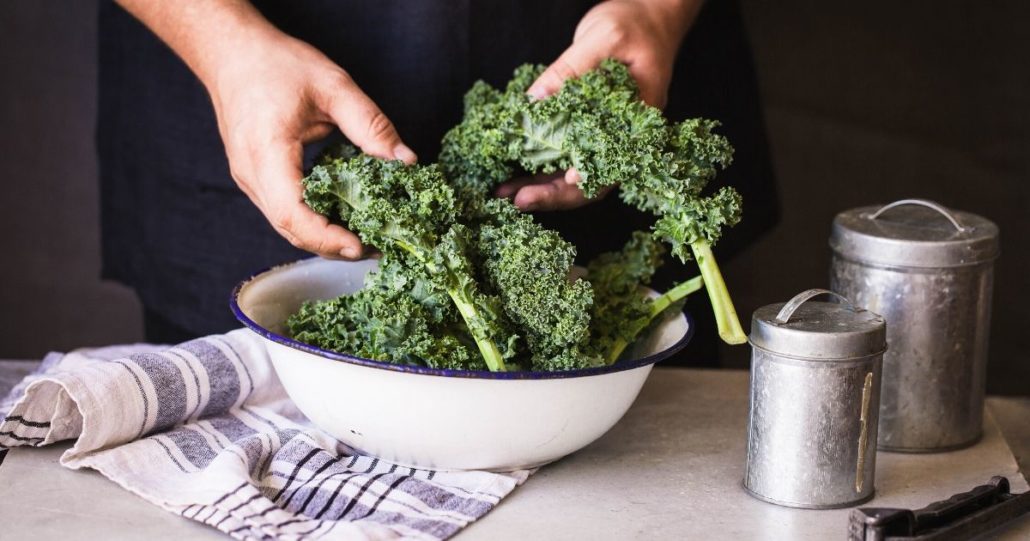
4. Which produce to keep dry
Root vegetables such as potatoes, beetroot, onions, and garlic can thrive when stored in a dark and dry storage space. If you see that they’re ripening up more than you’d like, you can store them in the fridge up to a day before using them.
5. Which produce to keep moist
Carrots, celery and fresh herbs last twice as long when stored in jars of water in the fridge. Remember to refresh the water every few days. This keeps veggies like carrots fresh and crunchy, and herbs perked up for longer than usual.
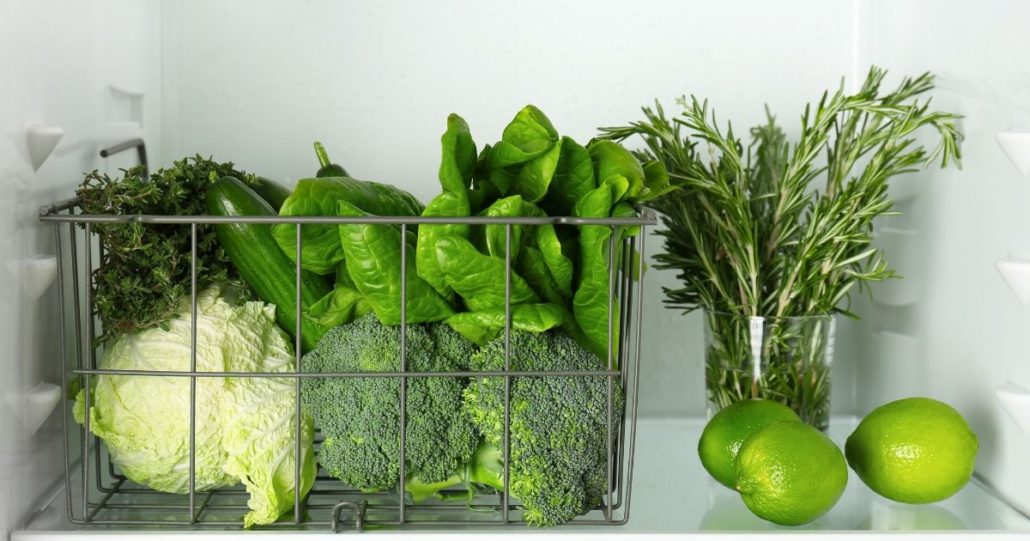
6. Cook food right before they spoil
If you notice that your fresh foods are beginning to spoil, cook them right away. This will help you preserve them even if you’re not planning on eating them just yet. Salt is a great way of reducing the amount of fresh moisture, which is the main cause of spoiling.
In general, cooked foods should be kept in air tight containers to help remove extra oxygen. Make sure the seal is as tight as possible with little air-flow.
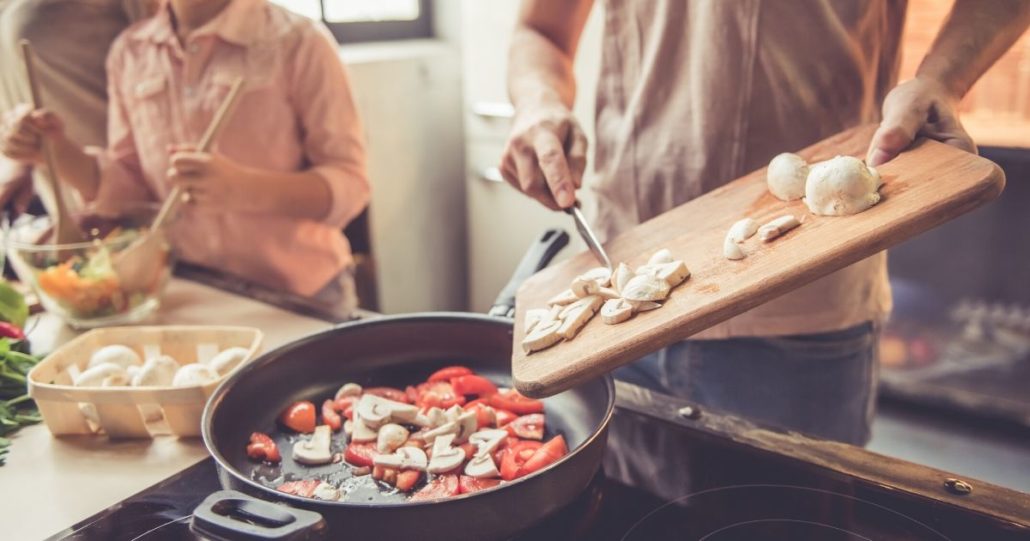
7. Freezing foods
Another option is freezing the food you don’t think you’ll get to right away. Like we said in a previous article, try not to store your food in plastic containers. Christine Liu states that the plastic can leach into your food, making it inedible. Opt for glass or metal containers instead.
When storing food, always make sure to not fill the jar all the way to the top. Some jars come with a helpful ‘max full’ line to indicate how full it should be. This is because foods expand when frozen and can cause the glass jar to break – common with soups and liquids.
Some words from the House.mt Team
Thank you for taking the time to read our article! A lot of this information was taken from Christine Liu’s Sustainable Home. If you’re interested in knowing more, click on this link.
Other Sources
Clean My Space on Youtube have loads of great videos on storing and preserving foods to make them last longer. Here’s one of many for you to watch! Click here.











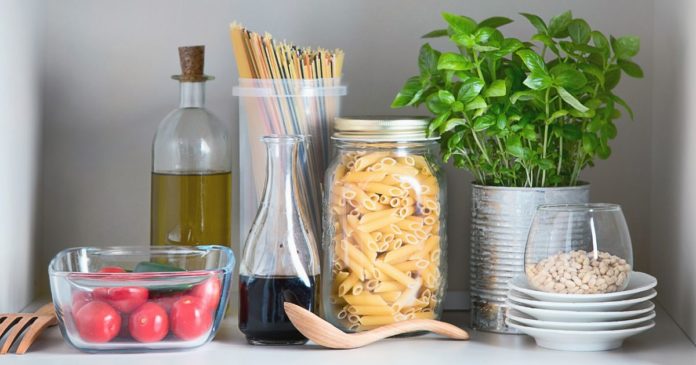


![11 Maltese Online stores that deliver furniture, furnishings & home decor [20/08]](https://blog.house.mt/wp-content/uploads/2020/08/1-12-218x150.png)